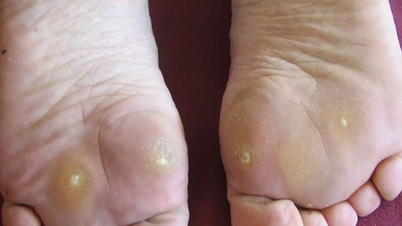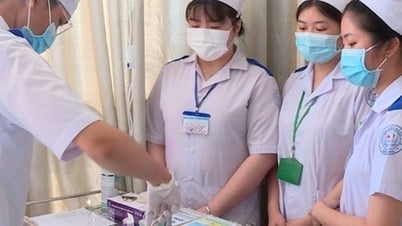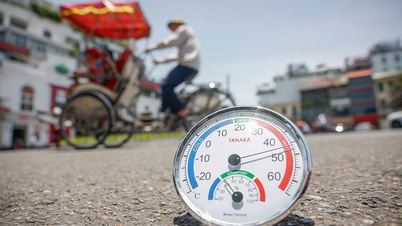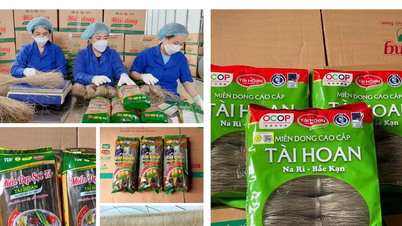Dr. Pham Thi My Anh, Department of Pediatrics - Thu Duc City Hospital (HCMC) said that intestinal worms cause damage to the intestinal wall leading to digestive disorders; poor absorption of nutrients makes children lose their appetite, slow growth, and malnutrition.
Symptoms when children have worms?
One of the common symptoms is anemia, iron deficiency makes children tired, have trouble sleeping, lose appetite, hair loss, cry a lot, pale skin. Severe anemia even leads to a decline in all activities of the organ systems, causing heart failure, immune deficiency leading to recurrent infections. Older children have difficulty concentrating, affecting intellectual and mental development, reducing the ability to work.
According to Dr. My Anh, in Vietnam, the main types of intestinal worms are roundworms, whipworms, and hookworms. Intestinal worm infections are a group of infectious diseases that receive little attention because the symptoms are not as dramatic as many other acute infectious diseases. The symptoms of worm infections depend on factors such as: number of worms, time of infection, infected organs, resistance, and nutritional status of the body.
Roundworms can cause intestinal obstruction, intussusception, enteritis, worms in the bile duct, appendicitis. Severe and prolonged infection with whipworms causes dysentery-like symptoms: tenesmus, bloody mucus in stool, and prolonged rectal prolapse.
Symptoms of intestinal worms are not only in the intestines but also in other organs. To detect or suspect a child has worms, you can monitor symptoms such as: Weakness, pale skin; digestive disorders; there may be respiratory symptoms when larvae of some types of worms move through the lungs.
Children infected with pinworms often cry at night due to anal itching or when the worms crawl into the genitals causing inflammation, crawl into the urinary tract causing frequent urination.
How to deworm children?
Dr. My Anh said that WHO recommends periodic drug treatment (deworming) for all at-risk subjects living in endemic areas without prior diagnosis and testing; performed 1-2 times/year depending on the epidemiological situation of each locality.
In Vietnam, the average worm infection rate is from 10 - 65%. Therefore, since 2016, the Ministry of Health has recommended that children from 12 months of age and older should start taking regular deworming medication.
Children 12 - 24 months can use Albendazole 200mg or Mebendazole 500mg 1 dose per treatment.
Children 24 months of age and older and adults use Albendazole 400mg or Mebendazole 500mg 1 dose per treatment.
The medicine can be taken at any time of the day. The deworming medicine should be chewed and swallowed with water. For children who cannot swallow tablets, the medicine should be crushed and dissolved. These medicines have undergone extensive safety testing and have been used widely by millions of people with few or no unwanted side effects.
What should be noted when giving worm medicine to children?
According to Dr. My Anh, deworming medicine should not be taken when children are suffering from acute illness, fever above 38.5 degrees; have a history of allergy to the ingredients of the medicine; pregnant women in the first 3 months, breastfeeding; children under 12 months old (except for special instructions from the doctor). Children with chronic diseases (kidney, heart, liver failure, asthma... should consult a doctor before taking the medicine).
How to prevent worm infection?
- Personal hygiene: Wash hands with soap before eating, after playing, after contact with soil and after defecation. Always keep fingernails clean and do not suck your fingers.
- Always wear shoes and sandals, do not sit on the ground, and wear protective gear when in contact with the ground.
- Eat and drink hygienically, eat cooked food and drink boiled water. Food should be washed thoroughly under clean running water.
- Environmental sanitation: Regularly clean schools and houses.
- Cut off the source of infection, treat infected people, and deworm regularly. It is necessary to form the habit of deworming regularly for the whole family at least once every 6 months (at least twice a year).
Source


































































































Comment (0)